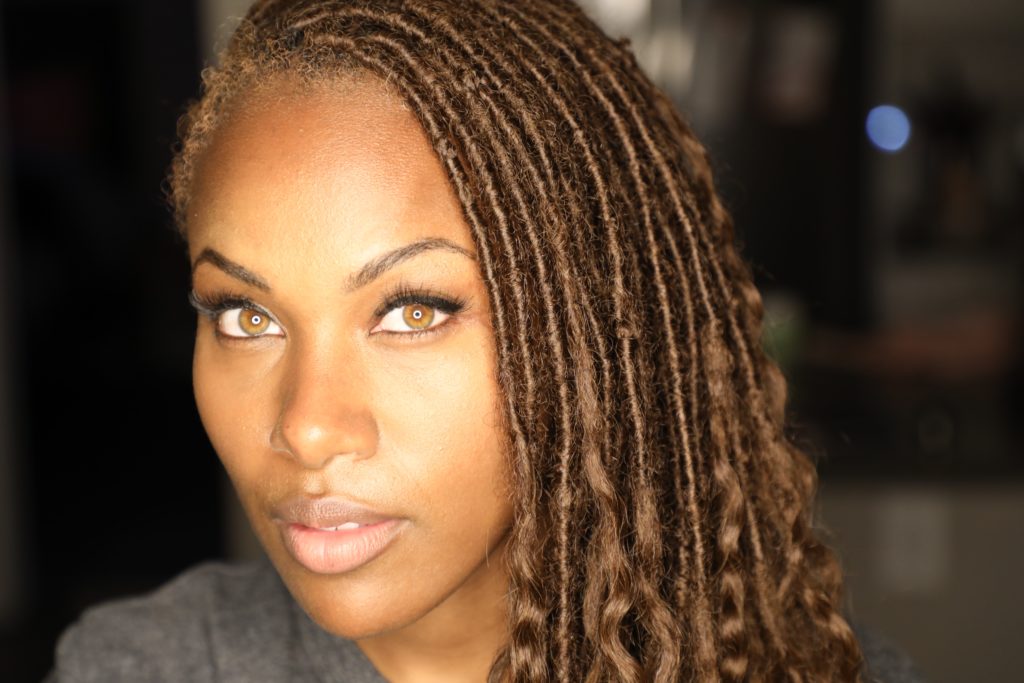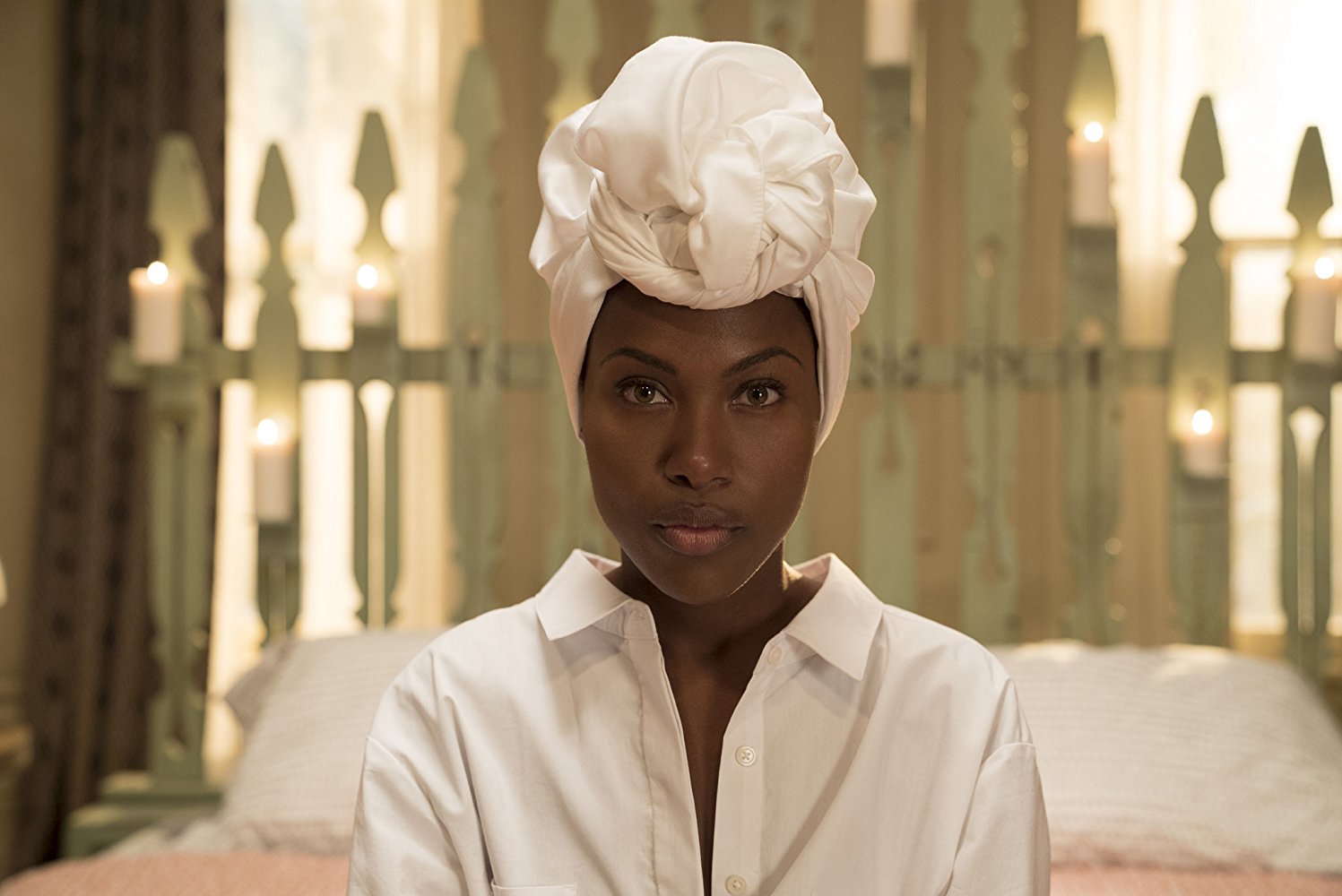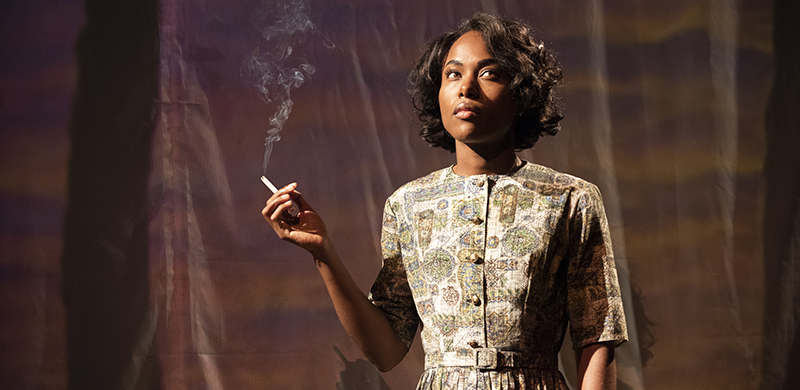DeWanda Wise, best known for her role as Nola Darling in the Netflix series “She’s Gotta Have It,” can currently be found Off-Broadway in “Fireflies” at the Atlantic Theater Company. Set in the Jim Crow South in 1963, the play tells the story of a young married couple, Charles and Olivia. Olivia (Wise) is a fierce, closeted speechwriter, and Charles (Khris Davis) is an activist leader. The play, written by Donja R. Love and directed by Saheem Ali, is the second work in a drama trilogy celebrating queer black stories at pivotal moments in history.
“Fireflies” is not Wise’s first foray into theater. She has appeared in Dominique Morisseau’s “Sunset Baby,” David Mamet’s “Race,” and Danai Gurira and Nikkole Salter’s “In the Continuum.” In addition to “She’s Gotta Have It,” Wise’s other TV credits include “Shots Fired,” “Underground,” and “The Good Wife.” Film-wise, she will next be seen in Stella Meghie’s “The Weekend,” which premiered at this year’s Toronto International Film Festival, and Jennifer Kaytin Robinson’s “Someone Great,” set to debut next year on Netflix. Wise’s other film credits include “How to Tell You’re a Douchebag,” which she executive produced, “Spinning Into Butter,” and “Precious.”
We recently talked to Wise about her role in “Fireflies,” black queer women’s history, playing feminist characters, and how she chooses her roles, on and off-stage.
“Fireflies” plays until November 11. You can find tickets and more info here.
W&H: You seem to choose roles with purpose and female influence. As a female artist, how important is that to you?
DW: I think it’s intrinsic. I usually try to go for what I feel is true. When I come across something that’s not and feels condescending or patriarchal or not fully fleshed out, I have one of two choices: I either go, how can I fill this out? Do I feel like it’s worth coming across a certain way and fighting the good fight to help writers get their characters closer to creating full-fledged women, or do I keep on moving and say it’s not for me?
I feel that I’ve had a lot of grace and good fortune that these roles exist. I’ve always been the artist I am. I have always followed the work and the roles that spoke to me, no matter where that was or what format I found it in. It just so happens that now these roles exist on a larger platform than they did before.
W&H: Much like your character Nola Darling in “She’s Gotta Have It,” Olivia feels very misunderstood because of her gender, because of the color of her skin, because of her abilities, which are being overlooked. Nola and Olivia are both feminist icons. Tell us about Olivia and what drew you to this role.
DW: When I read something for the first time, it’s very simple. If I’m weeping when I read it, I know there’s a visceral response and I don’t task myself with specifically identifying what the thing is. Sometimes it’s circumstantial. Sometimes there’s a connection with the character where I look at my life and at their lives and see the connection threads and those things are super personal. But a lot of times it’s very spiritual and explicable. Once I’m hit with that instinct, the more I dive into the history and into that particular world.
In Olivia’s case, I come from a line of women with dreams deferred. They were all teen moms. They were all born in eras where their options were limited, even if their options weren’t limited. For example, my grandmother got a scholarship to college when she had my mom. For her, it was just as simple as choosing a career or family. You couldn’t do them simultaneously. My mom was born in 1963, the same year [of the play’s setting]. There are certain roles and stories that made this very clear.
W&H: Olivia really evolves in this play. Her character is so rich. She learns to accept who she is — including the choices she makes about her body, her relationships, her sexuality, and her future. She has so many obstacles, yet she is also determined not to allow her own history, nor the history of the Civil Rights Movement, to be erased from America’s history. Talk about Olivia’s evolution and what it’s like to play her.
DW: Characters take over you, so it bears a certain space, weight, and energy. I will have that until we’re done. I honestly slip into each other because she’s in the atmosphere right now.
W&H: “Fireflies” also deals with issues of infidelity, rape, same-sex love, and domestic abuse, just to name a few. This play is important for the LGBTQ movement. For the pro-choice movement, for #BlackLivesMatter, even the #MeToo movement. How does it feel to be in this play in 2018?
DW: Every single night there’s a new resonance. When we were in previews, a certain Supreme Court Justice was being sworn in. Every night something resonates. There are moments and threads that resonate more powerfully and are palpable because it’s a kind of a fractured identity with Olivia because she’s black, she’s a woman, she’s queer. There are shows where I, as Olivia, am super fragile because it’s fucking overwhelming, and there are shows where I lean into one identity and feel it more than the other. There’s kind of a fracture in her.
I had this conversation with the director and he said you kind of want to see how this couple is making it through. I retorted by saying the purpose of the play is that we’re not making it through. These communities — women, black folks, queer folks — we are under duress and there are real consequences to the stress of fighting the good fight. There are tangible consequences, even if your physical body is not being as endangered as Olivia and Charles were at the time.
If you think about living in Birmingham, Alabama at the time — or “Bombingham” — it’s no wonder she is hearing bombs. But even if you are not concerned about the safety of your physical body or the stress of consuming the news, even in a present-day context, it has real mental health consequences, and physical stressors, like taking years away from your life, to where we were then and where we are now.
W&H: What knowledge did you have about black queer history in the 1960s before joining this play?
DW: Not a ton. I don’t think I really considered it, and once I started doing a deep dive, I saw that there’s not a lot out there. Back then no one was out. I watched this fantastic PBS documentary on Lorraine Hansberry [the black, queer activist and playwright behind “A Raisin in the Sun”] because [the role of Olivia] was speculated. She was divorced from her husband and living her most probably queer black woman’s life in Greenwich Village. You add on top of that the identities of the traditional Christian life of the preacher, and you can feel the impossibility of it for Olivia and Charles. It’s so far outside of what anyone deems acceptable and you see it with her struggle within herself, having been conditioned her entire life that she would go to hell for having those feelings. You can’t help but imagine and envision her fear and shame.
Towards the end, there’s a kind of weight that’s lifted, and a certain freedom and acceptance of who she is in the face of what anyone else accepts or deems appropriate or godly.
W&H: How did these findings work their way into the rehearsal process once you were in the room with Khris Davis and Saheem Ali?
DW: Yes, specifically with Khris and I, the play requires so much trust. There’s a moment in a dance where I’m like, I’m going to fall back every night and you have to catch me, hope you’re there!
W&H: What are you working on next?
DW: I’m working with, speaking of women, Jennifer Kaytin Robinson. She had this show on MTV called “Sweet/Vicious,” which has since become a cult classic. It’s vigilantes on a college campus in the aftermath of a series of assaults. Basically, these two kickass 20-somethings seek their revenge on men who haven’t been brought to justice.
I did a subversive rom-com called “Someone Great” under [Robinson’s] direction and she wrote. It also features Gina Rodriguez and Brittany Show. I’ve already done ADR [Automated Dialogue Replacement] for it, and it’s my favorite thing. It’s coming out in 2019. Season 2 of “She’s Gotta Have It” is coming out soon, too.









